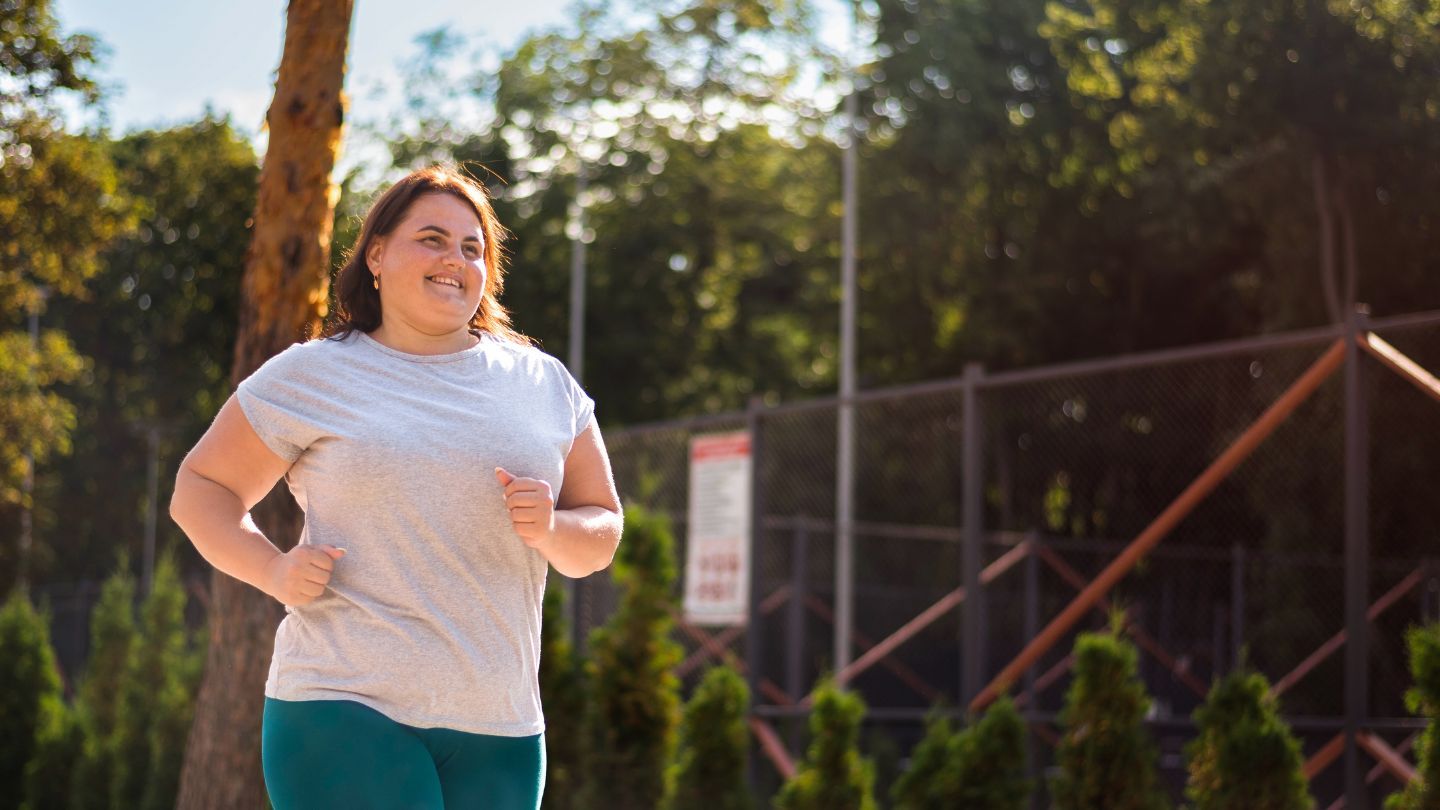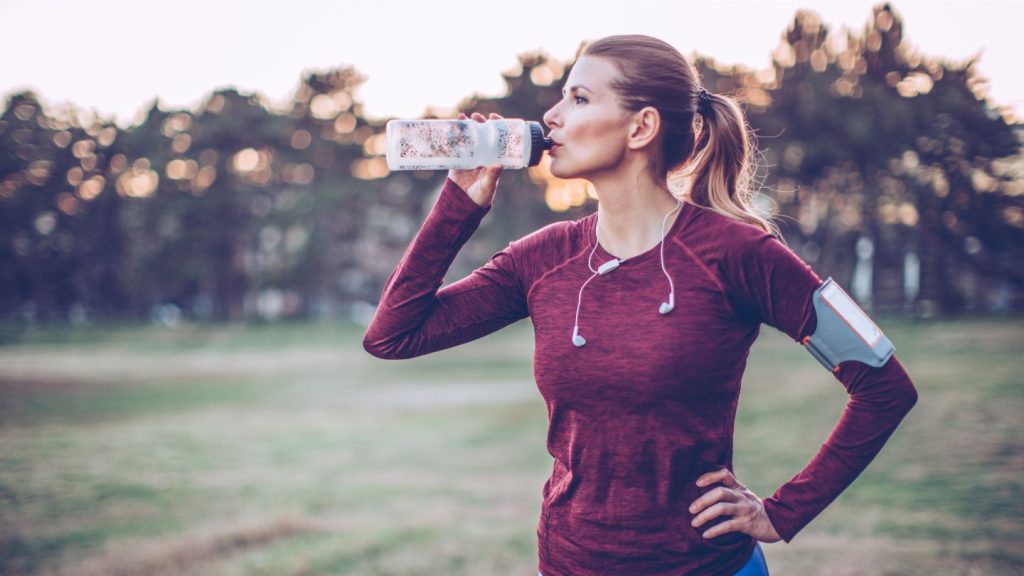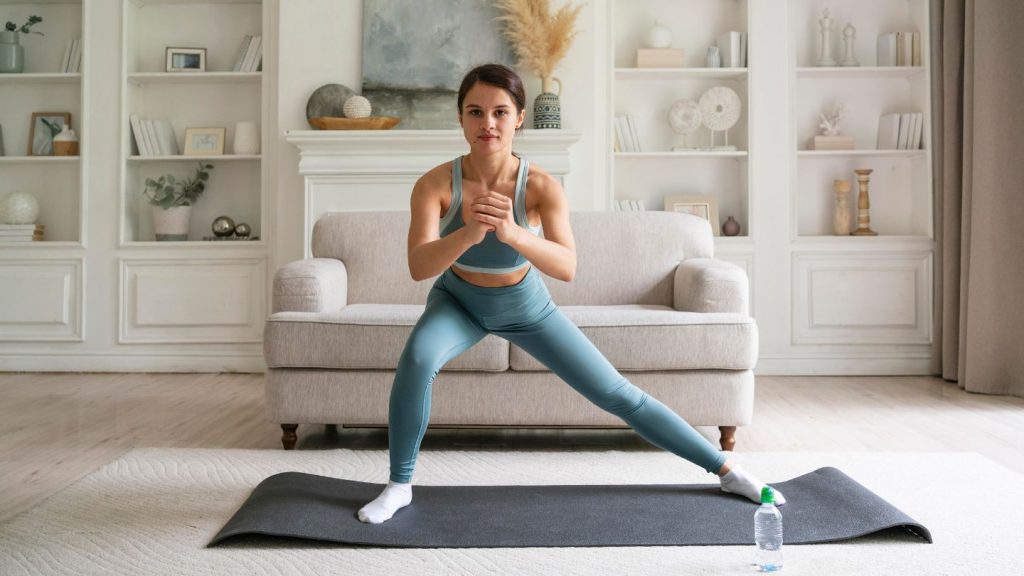
Coping with Summer Weather After Weight Loss Surgery in Maryland
Managing Maryland’s summer heat is critical if you’ve recently had weight loss surgery. The hot weather poses unique challenges that could impact your recovery. In this blog, we’ll provide practical tips on coping with summer weather after weight loss surgery in Maryland, including how to stay hydrated, recognize heat illness signs, and choose appropriate clothing to protect your healing body.
Key Takeaways
- Recognizing symptoms of heat illness is crucial post-weight loss surgery, as these can escalate quickly without prompt action.
- Staying hydrated is vital for recovery; consuming plain water and high-water-content foods contributes to better healing and prevents dehydration.
- Planning outdoor activities during cooler parts of the day and wearing protective clothing can help avoid heat-related illnesses and sun damage.
Recognizing Heat Illness Symptoms Post-Surgery

Recognizing heat illness symptoms is particularly important for those who have recently undergone weight loss surgery. Heat exhaustion, one of the more common heat-related illnesses, can manifest through excessive sweating, weakness, and cold, clammy skin. Being aware of these signs allows for quick action to cool down and hydrate.
Heat cramps, often experienced during strenuous activities in hot conditions, are characterized by painful muscle spasms. While these might seem like minor inconveniences, they can escalate quickly if not addressed. Taking breaks, staying hydrated, and avoiding overexertion can help in hot weather.
Heat stroke is a severe condition that requires immediate medical attention. Symptoms include confusion, a high body temperature, and potentially even unconsciousness. Early recognition of these symptoms can be life-saving. Those recovering from surgery should be especially vigilant as their bodies may not handle heat stress as efficiently.
Nausea and headaches are also common indicators of heat-related illnesses. These symptoms can often be mistaken for other post-surgery discomforts, so it’s vital to monitor your condition closely, especially during hot days. Awareness of personal risk factors, such as existing health conditions, can help in recognizing heat illness symptoms.
High temperatures can elevate heart rates and blood flow, increasing risks for individuals with hypertension. Regularly monitoring your blood pressure and being mindful of how your body responds to heat can help regulate temperature and prevent severe or life-threatening conditions. For many patients, living life after weight loss surgery means learning to adapt to seasonal changes while prioritizing health and safety. Proactive measures can ensure a smooth and safe recovery during the summer months.
Hydration Is Key

Staying hydrated is crucial, especially after surgery. Keeping our bodies well-hydrated helps the healing system function optimally, particularly in warmer temperatures. Here are some hydration tips:
- Aim to drink 6-8 glasses of water daily.
- Drink even more if you find yourself sweating a lot or spending time outdoors.
- Plain water is your best friend in these situations.
Sugary drinks and sodas might be tempting, but they are less hydrating and can lead to complications such as nausea. Avoiding sugary drinks and sticking to plain water or herbal teas is advisable. Dehydration caused by heat can reduce blood vessels volume, putting additional strain on the heart, which is particularly concerning for those of us with chronic conditions like diabetes.
Hydration is of utmost importance. Dehydration can impede the recovery process and may lead to severe complications. Drinking more water helps flush out anesthesia and prevents constipation caused by pain medications, facilitating a smoother recovery.
Water also plays a key role in transporting the nutrients essential for wound healing and overall recovery after surgery. Sip fluids consistently throughout the day rather than all at once to maintain a steady level of hydration. This approach helps in managing the body’s hydration needs more effectively.
Adding high-water-content foods like fruits and vegetables to your diet helps with hydration. Foods such as cucumbers and melons are excellent choices during hot weather. These dietary adjustments not only help in keeping you hydrated but also support your overall health and recovery.
Read more: Staying Properly Hydrated After Your Gastric Sleeve Surgery
Smart Clothing Choices
Post-surgery, your bariatric team may advise wearing loose, breathable garments made from tightly woven fabrics to protect healing skin and surgical sites from sun exposure. They can also guide you on safe sunscreen options for sensitive or recently healed skin, ensuring you have appropriate protection when outdoors. Always follow your provider’s recommendations for clothing and sun safety to promote proper healing and comfort.
Indoor Activities During Peak Heat

During your follow-up appointments, your care provider may suggest safe indoor exercises tailored to your recovery stage. Gentle movement, such as supervised walking or light resistance training, can help maintain circulation and support healing without overexertion. Your bariatric team can also connect you with physical therapists or wellness specialists who will customize an activity plan to match your fitness level and surgical recovery progress.
Cooling Techniques

Your care team may recommend professional cooling strategies to help regulate your body temperature during recovery. This can include maintaining a consistently cool indoor environment using air conditioning and ensuring proper ventilation. In some cases, clinical staff may suggest safe cooling aids, such as medically approved cooling garments, to help keep you comfortable during warmer days. Discuss any cooling methods with your bariatric care provider before use to ensure they align with your recovery plan.
Diet Adjustments for Hot Weather

Your registered dietitian or bariatric nutritionist can create a personalized meal plan that incorporates nutrient-dense, water-rich foods to support both hydration and recovery. These professionals can also provide specific guidance on safe fluid intake, portion sizes, and vitamin supplementation based on your procedure and individual health needs. Following their tailored advice will help ensure your diet supports wound healing, maintains hydration, and aligns with your overall recovery goals.
Gradual Physical Activity
Resuming physical activity gradually is crucial after undergoing weight loss surgery. Patients can typically begin short walks within 2 to 3 days post-surgery. These gentle walks can aid recovery and help maintain fitness levels without putting too much strain on the body.
Low-impact exercises, such as water aerobics and outdoor yoga, are highly recommended for post-surgery patients to facilitate recovery. These activities are gentle on the joints and can help improve cardiovascular health and flexibility.
Stretching and walking in shaded areas help maintain fitness without straining the body. Low-impact activities like gentle walking and using a stationary bike can also be beneficial for cardiovascular fitness post-surgery.
Bodyweight exercises can ease you back into fitness safely. If an activity feels uncomfortable, it may be too soon to do that activity. Stay within the time limits recommended by your doctor for outdoor activities.
Remember, the goal is to maintain an active life without risking your recovery. Listen to your body and gradually increase your activity level as you feel more comfortable, as this is how healthy lives are built.
Monitoring Blood Pressure
Blood pressure monitoring is essential, especially for those with a history of hypertension or heart disease. At-home blood pressure monitoring is crucial for managing hypertension. It also helps in preventing complications. Chronic high blood pressure increases the risk for heart attack or stroke, making regular monitoring crucial.
Advice on keeping blood pressure under control can be provided by professionals. It’s important to follow their recommendations and take any prescribed medications as directed.
For those who have undergone procedures like lap band surgery, monitoring blood pressure becomes even more critical. Certain medications, such as beta blockers, can affect how your body responds to heat and physical activity. Bariatric surgery can also influence these factors. Consult your doctor if you notice any significant changes in your blood pressure.
Regular monitoring helps you stay informed about your health status and take proactive measures to prevent heart problems. This practice is especially important during the hot summer months when heat can exacerbate existing conditions.
Monitoring your blood pressure closely ensures a safer and more comfortable recovery. Don’t hesitate to contact your doctor if you have any concerns or questions about managing your blood pressure post-surgery.
Avoiding Direct Sun Exposure
Avoiding direct sun exposure is crucial to protect your heal skin and prevent heat illnesses. Tightly woven fabrics offer better sun protection compared to loosely woven ones. Light, long-sleeve shirts and long pants shield exposed skin from sun damage.
In addition to clothing, using sunscreen is essential for comprehensive sun protection. It’s recommended to use broad-spectrum sunscreen with an SPF of 30 or higher for protecting incision sites. Mineral sunscreens containing zinc oxide or titanium dioxide are ideal as they are less irritating to healing skin.
Even on overcast days, up to 80% of UV rays can penetrate, so sun protection is necessary regardless of weather. The risk of sunburn and subsequent complications makes it imperative to be diligent about sun protection.
Staying hydrated is also important when spending time outdoors. Drink plenty of water and take breaks in the shade to avoid overheating. By taking these precautions, you can enjoy outdoor activities safely while protecting your skin and overall health. Remember to stay hydrated!
If you find yourself struggling with the heat or experiencing any symptoms of heat illness or heat disorders, seek professional treatment immediately. Contact your doctor, who can provide guidance and support to help ensure a safe recovery during the hot summer months.
Planning Ahead for Outdoor Activities
Planning ahead helps avoid heat-related issues and ensures safety during outdoor activities. Exercise during cooler parts of the day, like early morning or late evening, to avoid heat exposure. This allows you to stay active without risking your health.
To minimize exposure to extreme heat and reduce the risk of heat illnesses:
- Avoid outdoor activities during peak sun hours, typically 10 a.m. to 4 p.m., as this is the perfect time to recognize that these hours are when the sun’s rays are the strongest.
- Plan your activities around these times.
It’s also helpful to plan outdoor activities in advance to avoid major problems. Ensure you expect to have everything needed, including water, sunscreen, and protective clothing. Being prepared can help you stay safe and enjoy your time outdoors without any issues.
Engaging in outdoor activities is an important part of maintaining an active life. By taking these precautions, you can ensure that you stay safe and healthy while enjoying the beautiful Maryland summer.
Staying Healthy and Comfortable in the Summer
Adapting to summer weather after weight loss surgery requires mindful preparation, from staying hydrated and protecting your skin to choosing nutrient-rich, cooling foods. By making small adjustments to your daily routine, you can enjoy warm weather activities while supporting your recovery and overall health.
At Ascension Saint Agnes Bariatric Surgery, we provide guidance and support to help you navigate every season after your procedure. If you are considering bariatric surgery in Maryland, our team is here to provide personalized care and ensure you have the tools to maintain your progress year-round. We specialize in a range of advanced procedures, including sleeve gastrectomy, bariatric revision surgery, robotic surgery, gastric balloon, and more. Contact us or visit our website to learn how we can help you thrive.
Frequently Asked Questions
What are the symptoms of heat-related illnesses that I should watch out for after weight loss surgery?
After weight loss surgery, watch for symptoms of heat-related illnesses such as excessive sweating, weakness, cold clammy skin, muscle spasms, confusion, high body temperature, nausea, and headaches. Recognizing these signs early is crucial for your health.
How much water should I drink daily to stay hydrated post-surgery?
To stay hydrated post-surgery, aim for 6-8 glasses of water daily, increasing your intake if you’re active or in a hot climate. Staying adequately hydrated is crucial for your recovery.
What kind of clothing should I wear to protect my surgical scars from the sun?
To protect your surgical scars from the sun, wear loose, lightweight clothing made of tightly woven fabrics and apply sunscreen on any exposed skin. This combination will help safeguard your scars while allowing for comfort.
When is the best time to plan outdoor activities to avoid heat-related issues?
To avoid heat-related issues, plan your outdoor activities for early morning or late evening, steering clear of peak sun hours from 10 a.m. to 4 p.m. This approach will significantly reduce your risk of heat-related problems.
How can I monitor my blood pressure effectively during the summer months?
To effectively monitor your blood pressure during the summer, regularly check it at home and adhere to your doctor’s recommendations for management, especially if you have a history of hypertension or heart disease. This proactive approach will help you stay on top of your health in warmer weather.